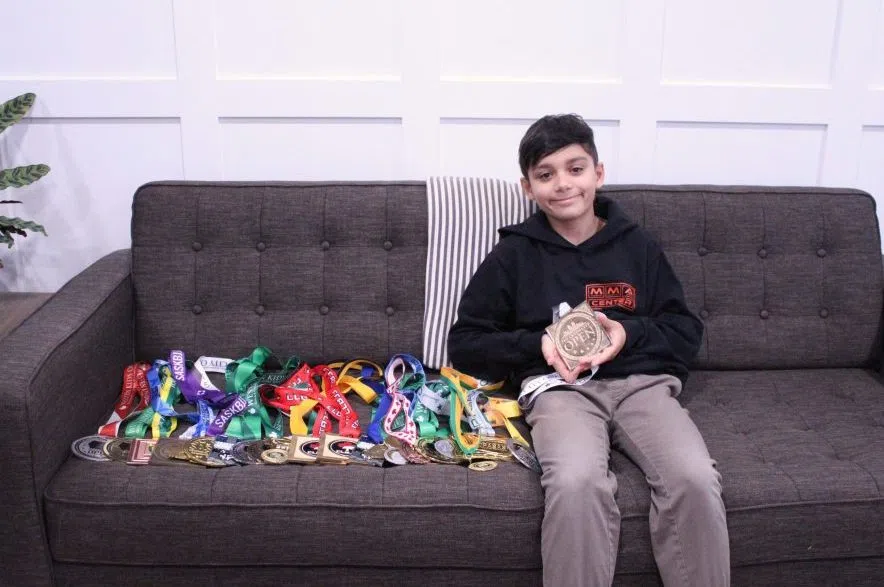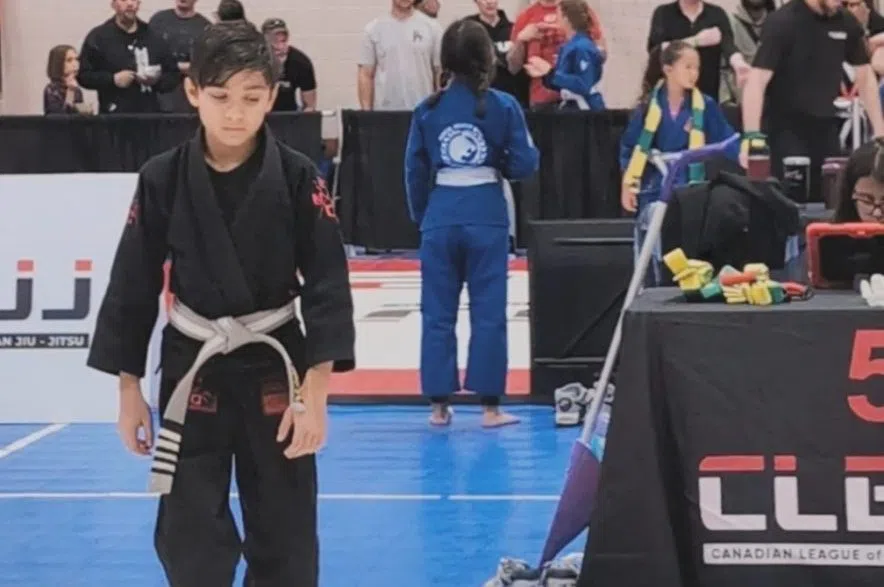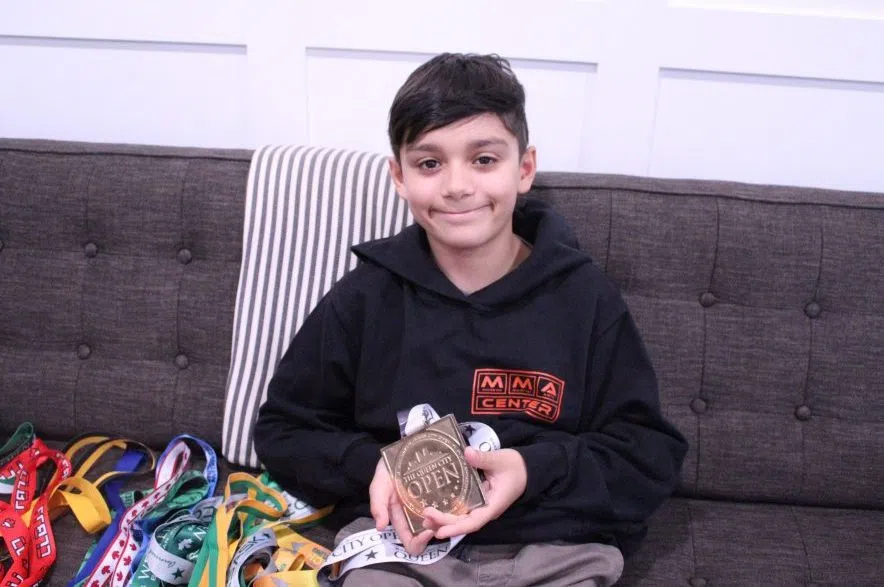At just 11 years old, Harley Lorenz is already making waves in the worlds of wrestling and Jiu Jitsu — sports known for their intensity, focus and discipline. But Lorenz’s journey to the mat has been unlike anyone else’s.
At the age of eight, Lorenz was diagnosed with X-linked Retinoschisis, a rare genetic eye disease that causes retinal damage, painful headaches and eventual vision loss.
“It’s a disease in the retina causing me to have really bad headaches and a lot of flashing dots all the time,” he explained. “It also makes my vision kind of blurry.”
Most people would’ve walked away. But Lorenz rolled forward.
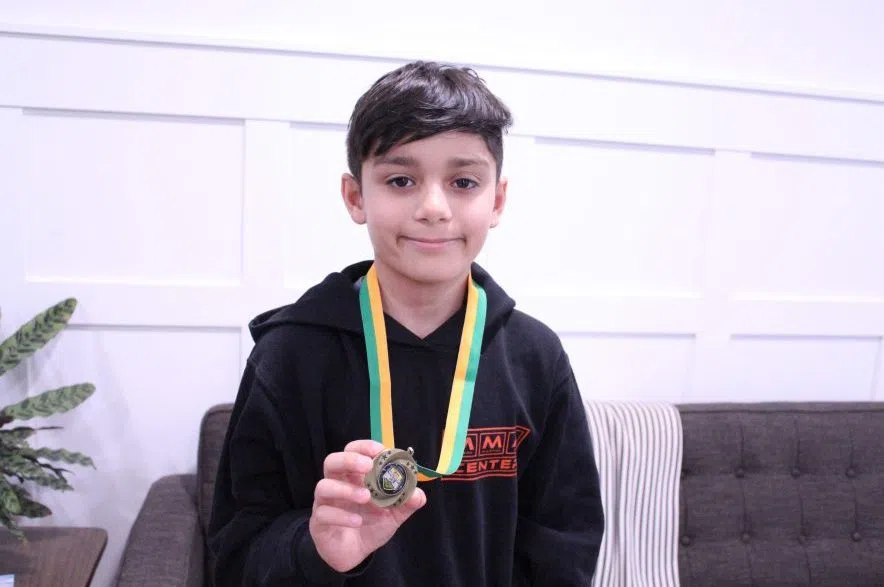
Lorenz is proud of the medals he’s earned in wrestling and Jiu Jitsu — each one a reminder of what persistence can achieve. (Brittany Caffet/650 CKOM)
Listen to the story on Behind the Headlines:
When the diagnosis came in, some doctors warned the Lorenz family that he should never again take part in contact sports.
“But I figured it’s good for your confidence and your mental health to still be able to do the things that you love, as long as it was safe,” recalled his dad, Adam Lorenz. A specialist agreed, and Lorenz returned to the mat.
Shortly after, he won his first gold medal.
Read more Saskatchewan Stories from Brittany Caffet:
- Inside the vault: Exploring four decades of Shakespeare costumes
- Superstitions at play: Saskatchewan Roughriders share their gameday rituals
- Explore the Saskatchewan rock museum one kid built from scratch
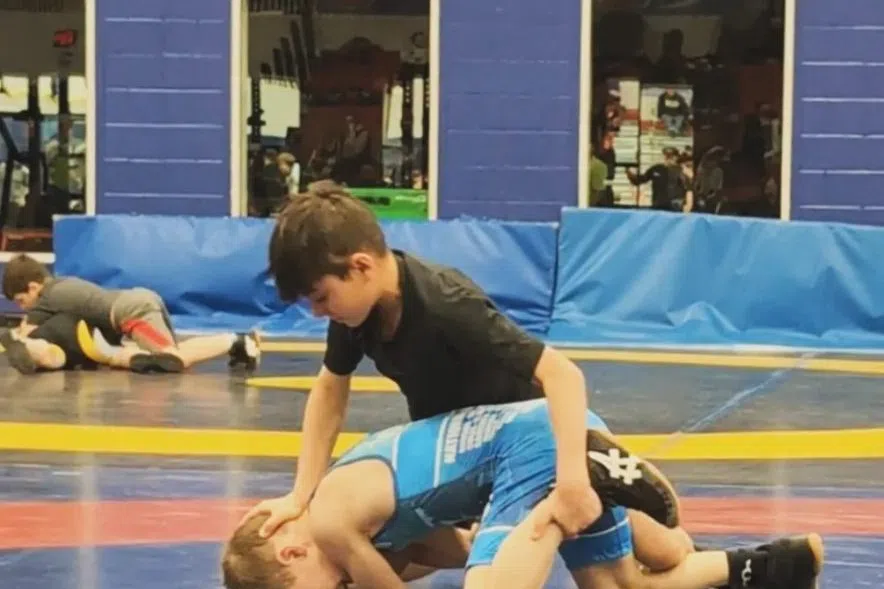
In a sport built on pressure and precision, Lorenz relies on feel and focus — adapting his technique to meet opponents head-on. (Submitted)
Now training out of Modern Martial Arts Centre in Saskatoon, Lorenz has learned to adapt his style to his condition — often grappling with his eyes closed.
“I usually roll with my eyes closed if my eyes are tired, because I have headaches,” he explained. “I’ve gotten really good at just feeling where they are. I know all the positions. The trick is just to keep calm.”
Lorenz doesn’t use his diagnosis as a reason to stop. Instead, his disability is a motivation to push harder. “There’s been some moments where I really didn’t feel good,” he admitted, “but just the drive to get to be a better wrestler — and someday one of the best — is what kept me going.”
His goals are bold and crystal clear: “Right now, I’m aiming for Nationals, like some of my teammates. And to be able to go train in Japan. It would be cool if I could get on the Olympic team too.”
Despite the challenges — long tournament days, bright lights, pressure — Lorenz doesn’t back down. “Before he goes out to matches, he’s just got his head down on my lap waiting for the next match. You can tell he really sucks it up and he goes and competes,” Adam said. “I’m really proud of the resilience and the perseverance. That’s what it’s all about.”
That spirit is now being recognized in a big way: Lorenz has been selected as a finalist in the 2025 Youth Athlete of the Year competition. The winner receives a $25,000 grand prize and a feature in Sports Illustrated — but for Lorenz, it’s about more than awards.
“I’d be really happy because I get to prove that you can do good things, even if you’ve got an eye disease,” he said when imagining what it would be like to take home the top spot. “That’s really what I want to win for.”
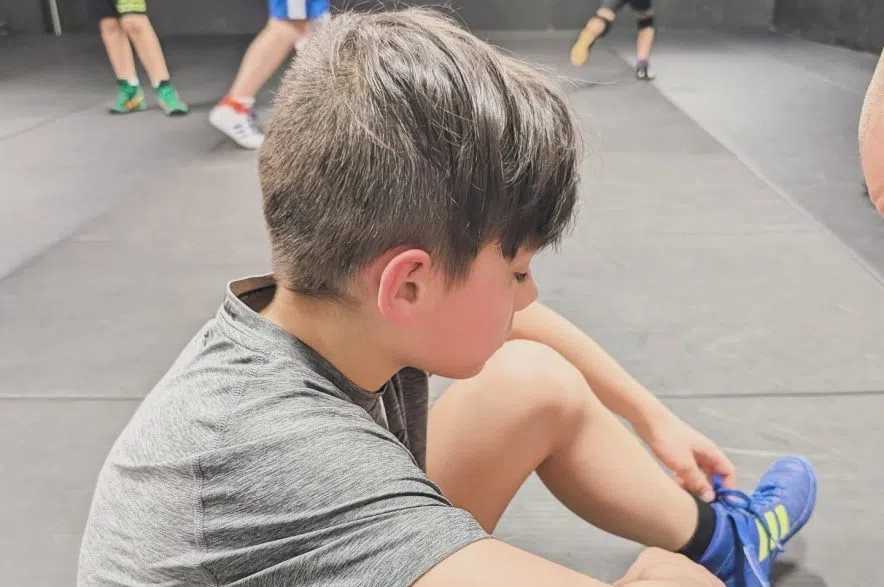
Between rounds at the gym, Lorenz rests his eyes. He often grapples this way too, relying on feel over sight. (Submitted)
He also hopes his journey helps others see strength in their own challenges. “Just because you have it two times harder, that should be something you’re proud of. If you’re working just as hard as someone else, you’re actually doing it two times harder.”
Adam echoed the same belief. “He doesn’t stop. He closes his eyes to rest them, but he keeps grappling. He keeps drilling. He doesn’t sit out.”
Lorenz’s message is simple but powerful: “Even though you have a disability, you can still do great things. That’s what I’m trying to prove.”
